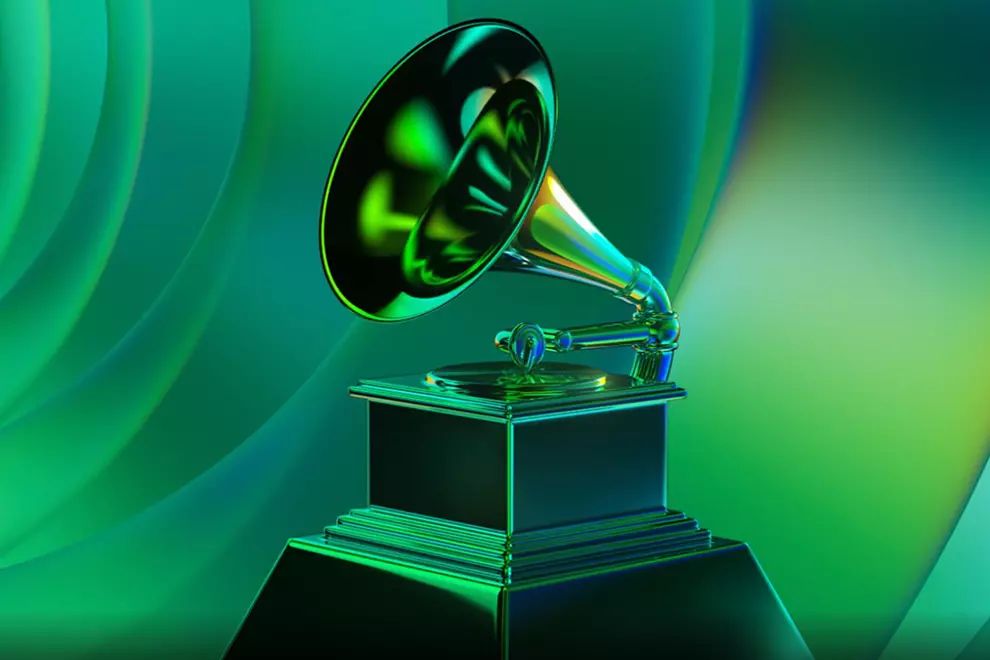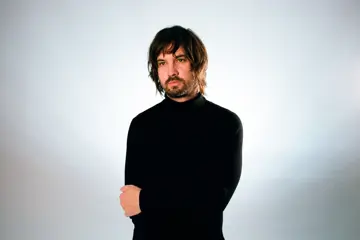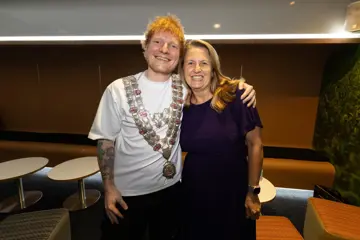In a fresh shake-up, the Grammy Awards has updated its guidelines to effectively ban AI-generated music, awarding next year’s accolades only to humans.
Music that “contains no human authorship” will officially be ineligible at the 2024 Grammy Awards. To win one of the most significant awards of the night, the Album Of The Year, the creator – whether it’s the featured artist, credited artist, songwriter, or producer – must have contributed a minimum of 20% of the work across the release, Noise 11 reports.
Recording Academy CEO, Harvey Mason Jr, said, per Inside Nova, “If there’s an AI voice singing the song or AI instrumentation, we’ll consider it. But in a songwriting-based category, it has to have been mostly written by a human. The same goes for performance categories—only a human performer can be considered for a Grammy.”
Mason Jr added, “At this point, we are going to allow AI music and content to be submitted, but the Grammys will only be allowed to go to human creators who have contributed creatively in the appropriate categories."
AI technology is controversial among figures in music, with Ice Cube recently threatening to sue any AI creator who uses his music without his consent.
Don't miss a beat with our FREE daily newsletter
In an interview on the Full Send Podcast, the rap legend (real name O'Shea Jackson) reflected on the rise in AI music covers in recent months, which sees artists' voices covering other popular tracks - and he's not a fan of the growing trend.
"I don't wanna hear an AI Drake song," Jackson said. “Yeah, I don’t wanna hear that bullshit. He should sue whoever made it."
Asked by co-host Kyle Forgeard what he would do if someone produced an AI track using his voice, Ice Cube didn't hold back on his thoughts.
“I'mma sue the motherfucker who made it and the people and the platform who play it," he responded.
AI also has its fans: Last week, Paul McCartney revealed that AI was used to aid in the production of what he dubbed “the last Beatles record”.
Speaking to BBC Radio 4, McCartney explained that he and his team were “able to use that kind of thing [Peter Jackson did when he] did the film Get Back” – that being the use of AI to salvage and remaster otherwise unusable content – noting that Jackson “was able to extricate John’s voice from a ropey little bit of cassette and a piano”.
McCartney continued: “He could separate them with AI… we were able to get John’s voice and make it pure through AI, and then we could mix the record, as you would normally do.”
Last month, Courtney Love and Kurt Cobain made headlines when an AI version of Kurt’s vocals was layered over the Hole song, Celebrity Skin.
The AI track drew reactions immediately, with fans expressing distaste and confusion on social media. “It's only the beginning of the AI era, but this is already creepy and crazy at the same time. I don't know what to think right now,” one fan said on YouTube, as another concurred, “This is frightening… the vocal inflections are haunting at many points. To be honest I kinda wanna sob.” Another fan offered, “I’m not sure if I love this or hate it”.
Meanwhile, on Twitter, the primary emotion was rage. “I strongly believe we need to make this shit illegal. Not even slightly kidding,” one user posted. Another called the AI number “copyright infringement, totally distasteful, poorly executed, and subtextual misogyny,” while a poster laid their feelings out as clearly as possible: “This sounds like shit.”
Nick Cave also finds the AI service, Chat GPT, to be “bullshit,” describing an AI take on a Nick Cave song as “a grotesque mockery of what it is to be human, and, well, I don’t much like it.”















